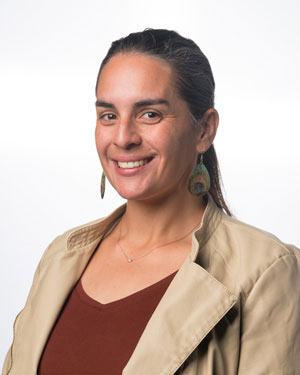 I was always drawn towards helping fields and landed on counseling, specifically in school systems, after I finished my undergraduate degree. I wanted to help adolescents who were unnoticed and were struggling with mental health, because as an adolescent, I had so few people looking out for my well-being. I continue to work with adolescents in schools in addition to working with clients in an outpatient setting. The passion for helping others is rooted in my Christian identity, in that my purpose in life is to serve others, especially those who are most broken in spirit.
I was always drawn towards helping fields and landed on counseling, specifically in school systems, after I finished my undergraduate degree. I wanted to help adolescents who were unnoticed and were struggling with mental health, because as an adolescent, I had so few people looking out for my well-being. I continue to work with adolescents in schools in addition to working with clients in an outpatient setting. The passion for helping others is rooted in my Christian identity, in that my purpose in life is to serve others, especially those who are most broken in spirit.
The mental health field has really grown and transformed in the last 60 years. Due to the evolving nature of society, technology, and systemic influences, mental health development has new elements that impact it. As a counselor, that means I need to stay current in new theoretical and clinical approaches, be aware of the systemic elements that affect mental health development, and be competent in supporting my clients in a culturally responsive manner.
I have been curiously fortunate to have been dealt the cards of life that I have been dealt. My generational lines on both sides of my family experienced poor mental health and addiction, and that has given me insight into life beyond a diagnosis or textbook chapter. I have lived and worked in some of the most impoverished areas in society and experienced mental health impacts in society firsthand. When presented with the problems a client brings in, my lived experiences help me to see beyond a traditional diagnosis to understand the deeper layers involved, and to be much more intentional and relevant in my counseling work.
Faith driven counseling is something that is indescribable. I do not have to hide who I am as a Christian, or hold back my faith. This has been the most amazing feeling that has increased my self-efficacy and capacity in my work.
There are two aspects in counselor education: active and passive learning. The passive learning aspect includes covering core content. The active component focuses on skill development. [Bethany’s] online learning provides an efficient, learner-centered approach for passive content. When we meet in person, we solely focus our efforts and time on active learning and skill development. I appreciate this balance because when we are in person, we get to go very in depth with the active learning since the passive learning has already been completed.
As we live in a fallen society, we are seeing a decreasing trend in Christian visibility. In our program, we are training not just the next dynamic force to address the mental health crisis, we are also training Christian counselors to be capable of integrating faith both explicitly and implicitly in their work. This is an opportunity to witness, provide testimony, and make our Christianity visible as we care for the souls that God has put in our lives. My duty in life is to serve, and God has blessed me with an amazing opportunity to serve via training Christian counselors who will serve many more than I will be able to.

